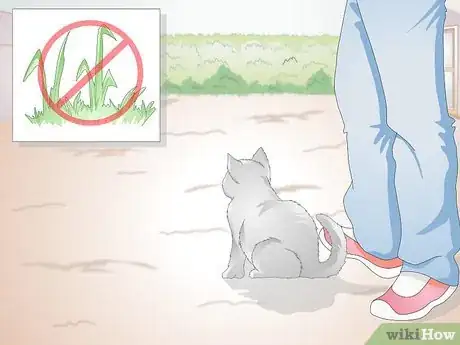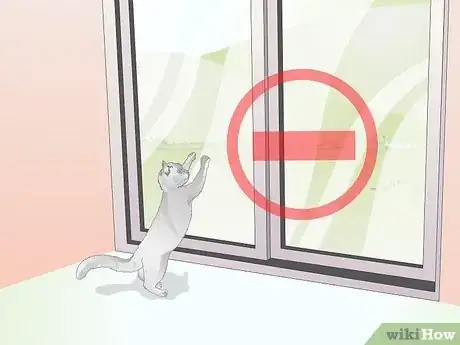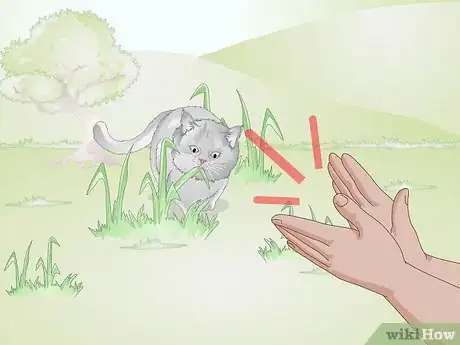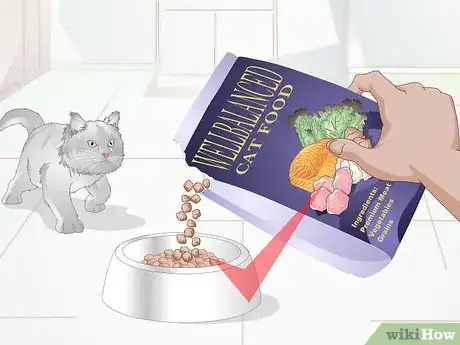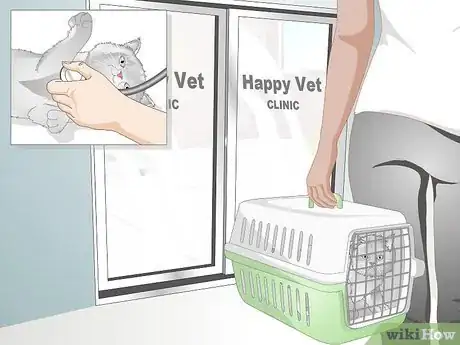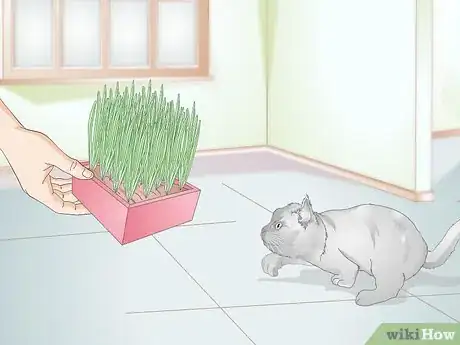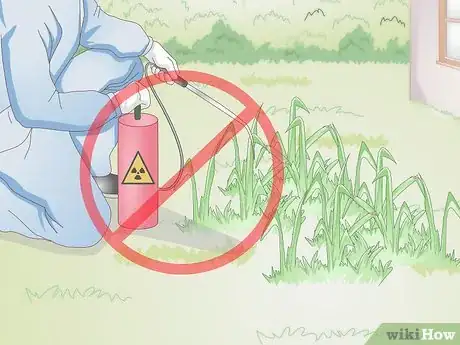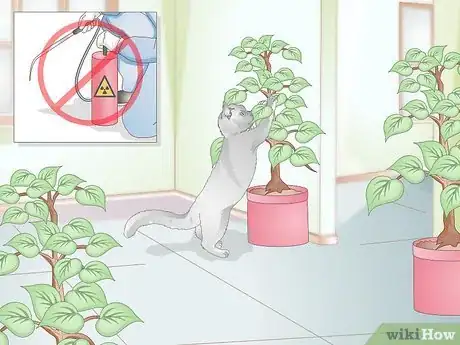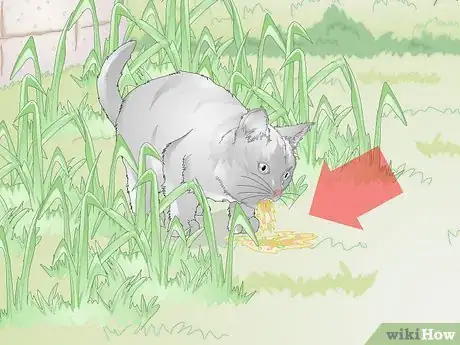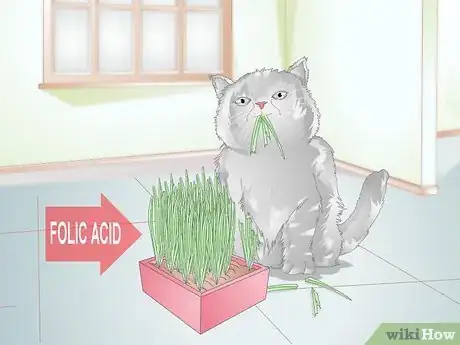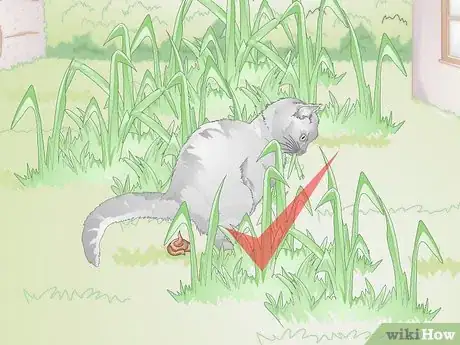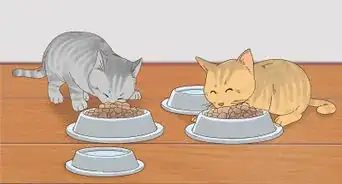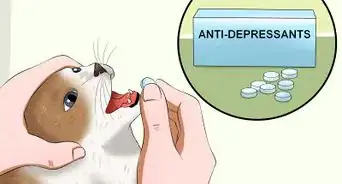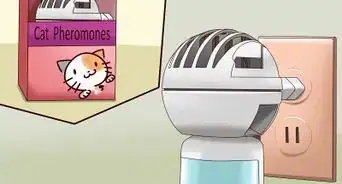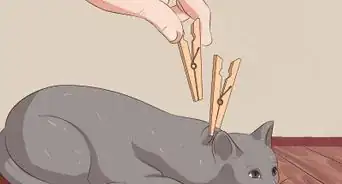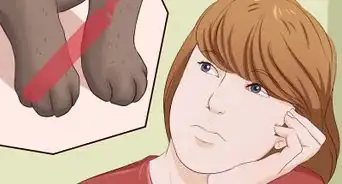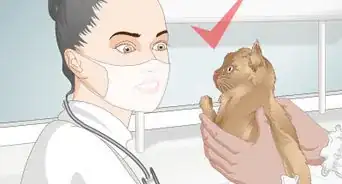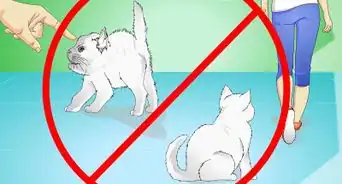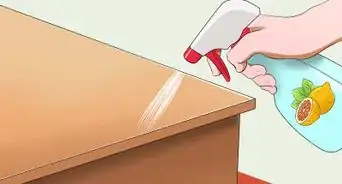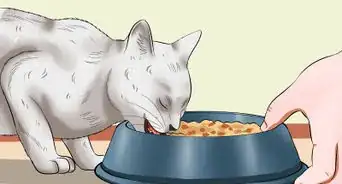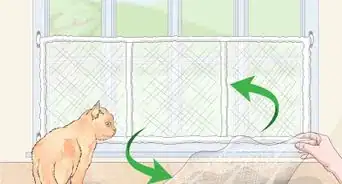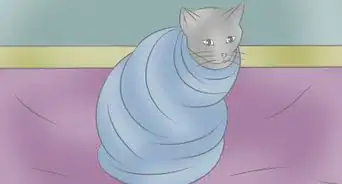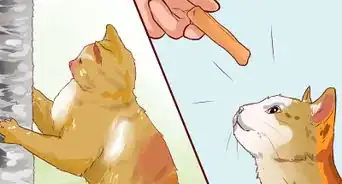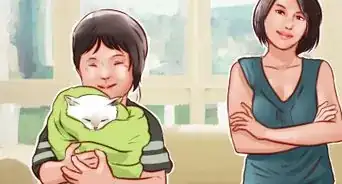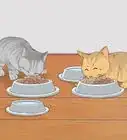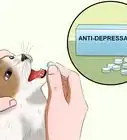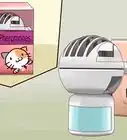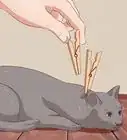This article was co-authored by Pippa Elliott, MRCVS. Dr. Elliott, BVMS, MRCVS is a veterinarian with over 30 years of experience in veterinary surgery and companion animal practice. She graduated from the University of Glasgow in 1987 with a degree in veterinary medicine and surgery. She has worked at the same animal clinic in her hometown for over 20 years.
This article has been viewed 23,521 times.
Your cat may eat grass, which causes them to throw up. You may be concerned at your cat’s eccentric behavior. While experts don’t know why cats eat grass, there are many theories about why they do it. If your cat eats grass, it’s probably harmless. However, if your cat is obsessively eating grass, you can stop them by keeping them away from grass, planting cat-friendly indoor grass, trying to modify their behavior, or taking your cat to the vet.
Steps
Stopping Your Cat From Eating Grass
-
1Keep your cat in a grass-free area outside. If you want to take your cat outdoors to get exercise or some sunshine, they may end up eating grass. To keep your cat away from grass, contain them to a sidewalk or driveway, a back deck, or a sun porch.[1]
- You may also take your cat out on a leash.
-
2Keep your cat indoors. If your cat has become obsessed with eating grass, you may need to remove them from all sources of grass. If your cat is an outdoor cat or is allowed to go outside, you should bring them inside so they can’t eat any grass.
- You may need to keep your cat away from grass for days or weeks to help break the habit.
Advertisement -
3Try to modify the behavior. To help keep your cat from eating grass, you may need to modify their behavior. This means trying to use negative reinforcement to train the cat not to eat the grass. Go outside with your cat and try to deter them from eating grass.
- For example, if the cat starts to eat grass, clap your hands loudly to scare the cat. You may also try shaking something loud, like a can full of pennies, to distract the cat from eating grass.
- Eventually, the cat will connect the unpleasant, startling sound with eating grass and stop eating it.
- Do not hit, yell, or scold the cat to keep them from eating grass.
-
4Alter the cat’s diet. Sometimes your cat may eat grass to get missing nutrients. To help your cat with this problem, you can try changing their diet. Feed your pet a cat food that provides balanced nutrition to ensure they are getting the nutrition they need.
- The vet may may be able to run blood tests to check for any nutritional deficits.
-
5Take your cat to the vet. If your cat continues to eat grass and gets sick, then you may want to take them to the veterinarian. Grass may make your cat vomit often or have diarrhea. This can lead to health problems, so you want to get your cat checked out.[2] Your cat may have a problem if they eat a lot of grass at once or eats it every day.[3]
- Your vet will do a physical exam to check for any problems with your cat. If your vet suspects there is an underlying medical condition, they will perform tests to figure out if anything is causing the grass eating.
- For example, a cat with OCD may obsessively eat grass, which your vet can treat with medication.
Keeping Your Cat Safe If They Eat Grass
-
1Provide grass indoors. If you have an indoor cat who wants to eat grass, you may want to buy indoor grass from a florist or flower shop. Pet shops also offer cat friendly grass, such as wheat, oat, or ryegrass. This can provide your cat with a safe way to eat grass. You may also grow your own grass in a small pot or window box for your cat.[4]
- Wheat, oat, or ryegrass can be very nutritional for your cat’s digestive tract.
- Grass you grow yourself will be safe from any pesticides or contaminated pet waste.
-
2Make sure to keep your grass pesticide free. If you have an outdoor cat or your indoor cat goes outside, they may eat grass from your lawn. This grass may have pesticides, bug sprays, or weed killers on it. This grass may also contain urine or feces from your pets, or from neighborhood or wild animals.[5]
- Try to keep your grass pesticide free, and clean up after your pets when they go to the bathroom.
-
3Keep toxic-free houseplants. If your cat won’t stop eating grass, you may try to keep them inside to prevent them from being around grass. However, if your cat really wants to eat grass, they may start eating houseplants or flowers inside your home. Many of these things can be toxic to cats.[6]
- If your cat has been eating grass, figure out if any houseplants your cat can eat are toxic to cats. You can look the flower or plant up online or consult your vet. It won’t take much of a toxic plant to harm your pet.
Determining Why Cats Eat Grass
-
1Know that cats may eat grass to throw up. One theory of why a cat eat grass is that if a cat eats grass, they will throw it back up. This happens because the cat doesn’t have digestive enzymes that are needed to break down the grass and digest it. A cat may eat grass to rid their stomach of any indigestible contents that is inside it.[7]
- Your cat licks their fur to groom, and this causes hair to get in their digestive tract. They may need the grass to help throw it up or pass it through defecation.
- Cats often eat prey whole, which means matter that the cat is unable to digest is in their stomach, such as bones, fur, or feathers.
-
2Understand that your cat may be getting essential nutrients. Cats may eat grass because they need an essential nutrient, folic acid. Grass contains folic acid, which the cat needs for proper bodily functions. Folic acid also helps the cat produce hemoglobin.[8]
- If your cat is eating a few blades of grass occasionally, they may be trying to get folic acid.
-
3Notice if your cat is constipated. Another reason your cat may be eating grass is because they are constipated. Grass may act as a laxative to help any indigestible material that has moved deeper in the digestive tract continue moving through so your cat can eliminate it through defecation.[9]
- You cat may eat grass if they are having indigestion.
References
- ↑ https://www.purina.com/dogs/dog-health/5-ways-to-stop-your-pet-from-eating-grass
- ↑ http://www.vetstreet.com/care/my-pet-wont-stop-eating-grass-whats-going-on
- ↑ https://www.catchow.com/catipedia/basics/why-cats-graze/
- ↑ http://www.care2.com/greenliving/wheat-grass-decorative-kitty-treat.html
- ↑ http://www.knowyourcat.info/info/catingrass.htm
- ↑ http://www.knowyourcat.info/info/catingrass.htm
- ↑ http://www.knowyourcat.info/info/catingrass.htm
- ↑ https://www.catchow.com/catipedia/basics/why-cats-graze/
- ↑ http://www.petmd.com/cat/wellness/evr_ct_eating_grass
About This Article
If you want to stop your cat from eating grass, keep it on the sidewalk, driveway, or porch whenever you take it outside, or keep it indoors, instead. You could also train it by clapping your hands loudly whenever it eats grass. This will cause your cat to associate eating grass with an unpleasantly loud sound, and hopefully deter it from ever eating grass again. However, if your cat continues to eat grass and get sick, take it to the vet for a physical exam. Sometimes, cats will eat grass because they are missing certain nutrients in their diet, so ask your vet to run a blood test for nutritional deficits, if you think that could be the problem. For more advice from our Veterinary co-author, like how to safely provide grass for your cat to eat, read on!
